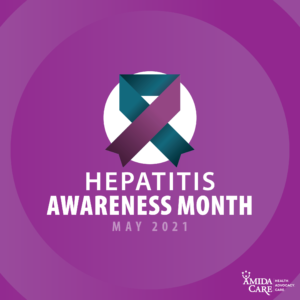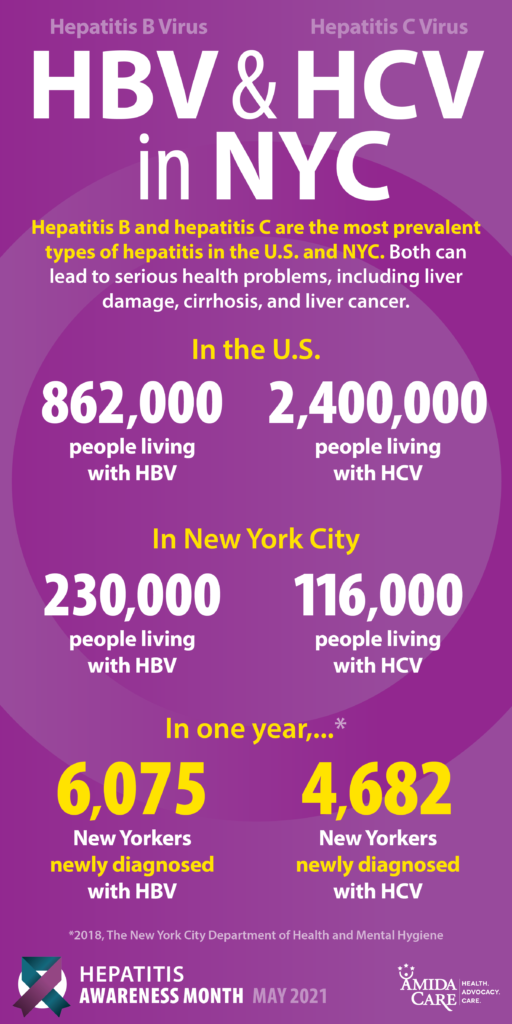Fighting Viral Hepatitis by Increasing Awareness and Testing

May is Hepatitis Awareness Month, and May 19th is Hepatitis Testing Day in the U.S., an important time to raise awareness of viral hepatitis and its impact. These observances provide the opportunity to focus on the importance of vaccinations for hepatitis A and B, testing for hepatitis B and C, the availability of care and treatment, and the serious health consequences that can result from untreated viral hepatitis.
Hepatitis is an inflammation of the liver caused by the hepatitis virus. Hepatitis B (HBV) and hepatitis C (HCV) are the most prevalent types in the U.S., and both can lead to serious health problems, including liver damage, cirrhosis, and liver cancer. While HBV is preventable by vaccine, there is currently no vaccine for HCV. However, treatment for HCV, involving 8–12 weeks of oral therapy (pills), cures over 90% of cases with few side effects.
HBV and HCV transmission usually occurs through contact with the blood of someone who is infected, as when individuals share needles used to inject drugs, hormone or medication shots, tattoos and piercings, or through sexual contact.
What Is Being Done
Though it can cause serious health issues, viral hepatitis can be prevented or cured! Let’s continue the fight toward a hep-free NYC.
- The best way to avoid serious health problems resulting from hepatitis is to get tested regularly and seek care quickly. Find out where you can get low-cost or free testing, medical care and treatment using the NYC Health Department’s NYC Health Map.
- The NYC Health Department funds several syringe service programs to provide health care services to people who inject drugs in order to prevent the transmission of viral hepatitis and other blood-borne illnesses.
- The NYC Health Department also promotes patient navigation for people placed at risk for or living with viral hepatitis, many of whom face unique barriers to accessing health care, such as low income, homelessness, and limited or no health insurance.
